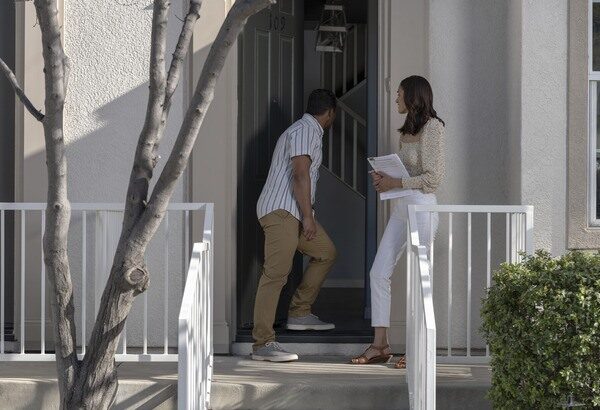
If you’re moving out of a home you own, you might be wondering whether to rent your house out or sell it. Both of these options have benefits. It’s important to look at your individual situation and weigh the pros and cons before you decide.
Many elements factor into choosing whether to rent or sell your house. Some of the first questions to ask yourself are what the market is doing in your area and what the long-term outlook for your particular neighborhood is. Are property values increasing, or are they on the decline? If they’re increasing, you might benefit from renting out your house and then selling it for more money in another year or two.
However, if property values in your neighborhood are declining and you have concerns about how the market may fare over the next few years, it might be advantageous to sell your home now to potentially avoid taking a loss.
What to consider before you rent out your house
Even if you determine that it could be financially advantageous to rent out your house, it’s not time to put the “For Rent” sign in the yard just yet. Here are some personal factors to think about before assuming landlord duties:
- How much time do you have? When you rent out your home, you still have obligations as an owner. You need to make sure that you’re able to meet your tenants’ needs, such as repairs or emergencies, while following all landlord and tenant laws. It helps to contact an experienced lawyer to learn more about these laws, too.
- Are you financially prepared? Can you cover the cost of the mortgage if a tenant misses rent or if the house sits unoccupied for a few months? What about the cost of emergency repairs?
- How much do you need to charge? You may want to charge enough rent to cover the cost of your mortgage, taxes and insurance. If it’s feasible, you might want to set a rent that can partially cover repairs and earn extra income. Make sure that you’re able to ask for enough to prevent it from costing you money — and ask a real estate agent about fair market values in your area. If your rent amount is above fair market value, you may not find a tenant.
- Can you afford the upkeep? Before putting your house up for rent, make any needed repairs. Take care of any other minor improvements that make the home presentable and allow you to get the rent amount you want.
The pros of selling vs. renting
Weighing the pros and cons of each scenario is a good way to determine whether selling or renting is best for you. Here are some pros to consider:
Selling:
- This provides immediate capital that you can use toward purchasing another home or putting in savings
- Possible tax incentives
- Freedom of not needing to maintain more than one property
Renting Out:
- Can provide a steady stream of income
- Could offer potential tax breaks
- Property could appreciate and be worth more if you decide to sell later
In addition to the benefits of each, looking at the downsides is equally important. Before making a decision, weigh these potential cons:
Selling:
- If the market isn’t good, you may not be able to get as much money as you’d like
- You may have to do additional repairs to your home and spend money to make it attractive to buyers
Renting Out:
- If you can’t commit the time required to be a landlord, you may need to hire a property management company
- Tenants may cause damage to the property, which needs to be repaired
- You cover the cost of the mortgage, taxes, insurance, utilities and other expenses when the house is between tenants
There’s no right or wrong answer when it comes to deciding whether to rent or sell your house. Evaluate your unique situation and make the choice that’s right for your needs and your financial future. Researching your local real estate market and learning more about how to become a landlord are helpful next steps you can take in making your decision.



